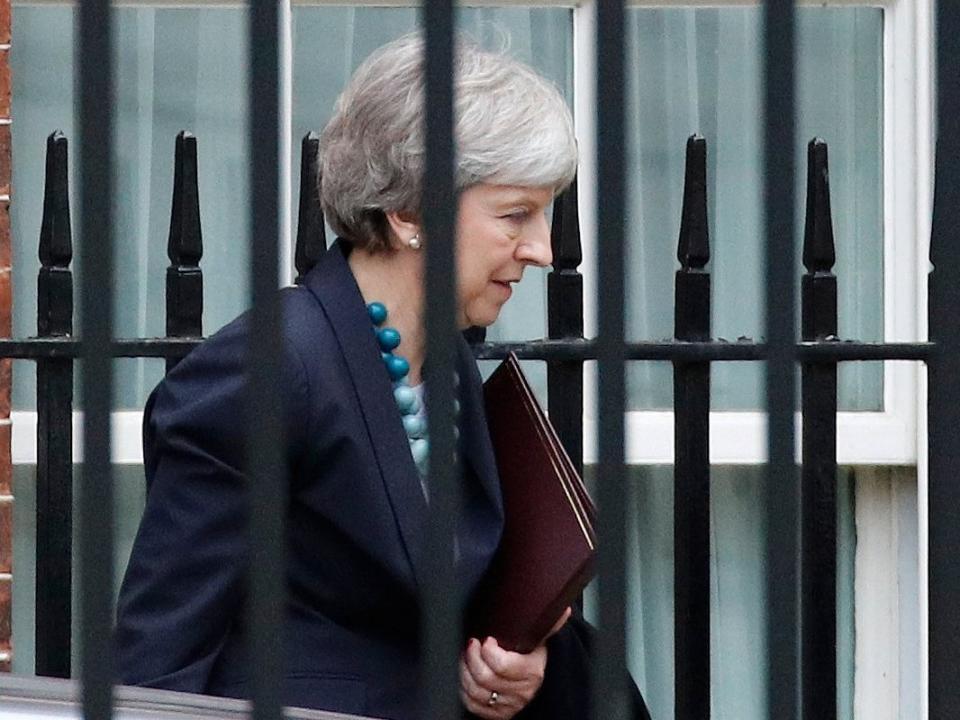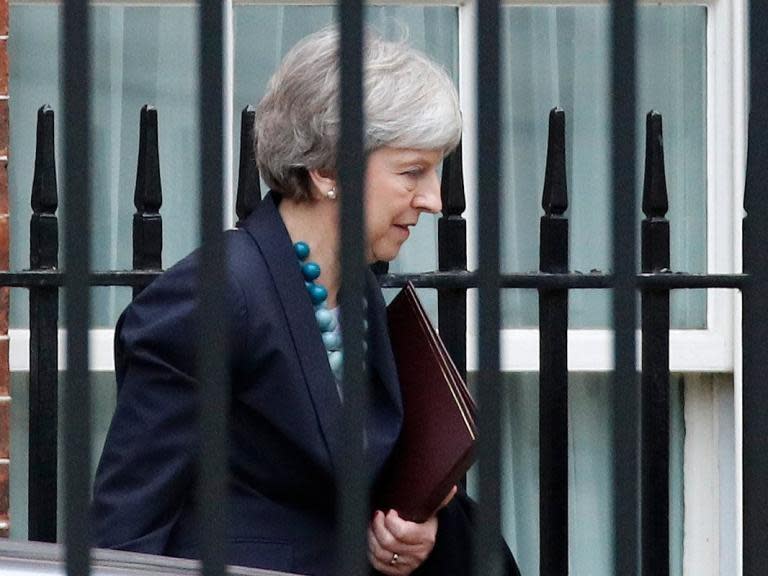Brexit is an inferno from which all exits are blocked except one. Brexiteers need to put down the petrol and accept it
For some time now, the sanest analysis on “what happens next with Brexit” has come from those brave enough to say: “I don’t know.” There was no conceivable way through the impasse that would follow Theresa May’s deal being voted down. Something unexpected would have to happen. And sure enough, it has.
At 11.30 on Monday morning, precisely nine minutes after the prime minister’s spokesperson told journalists “The vote is going ahead as planned”, the vote was delayed.
The deal could not be voted upon, because it could not possibly pass. Nor can it be renegotiated, at least if the EU is to be believed. And the alternative – leaving the European Union with no deal – will not be allowed, because parliament has said so, via Dominic Grieve’s amendment.
Meanwhile, Jeremy Corbyn says he wants a general election, so that he can renegotiate a “jobs first Brexit” that involves a “permanent customs union and a strong single market deal”. This is a fantasy. Labour’s “six tests” on Brexit were initially dreamt up to hold David Davis to account for the laughable impossibility of his demands. Now, they appear to be genuine demands.
We are in an inferno from which all exits are blocked, except one. A second referendum offers a viable way out, but only if Brexiteers accept it and stop their current course of action, which is to pour petrol on it and seek to blame others for the blaze they intend to start.
The Sun has the temerity to mention the murder of Jo Cox, when it warned last week: “What a tsunami of rage politicians would unleash by ignoring the democratic rights of millions on the winning side of the biggest vote in British history.”
It is a threat so despicable it can hardly be described as veiled.
Michael Gove was on the radio on Monday morning describing those who want a second referendum as “trying to thwart democracy”.
It shouldn’t have to be repeated that one vote does not thwart another. Democracy does not thwart democracy.
There are certain realities that should not be controversial to Brexiteers. Firstly, that the referendum was a reckless gamble by David Cameron, and it was designed only for a Remain vote, not a Leave one. A Remain win gives clear instructions. A Leave win opens the door to a whole range of outcomes that have led us to where we are.
Secondly, after becoming prime minister, Theresa May spent a long time deciding what version of Brexit she wanted. She made it clear in a landmark speech at Lancaster House. She then put that version of Brexit to the public in a general election. The results of that general election made that version of Brexit impossible (though they may have been impossible to implement even with the vast majority she was hoping for).
In 2011, during a debate on the possibility of a referendum on EU membership, Jacob Rees-Mogg told the House of Commons: “We could have two referendums. As it happens, it might make more sense to have the second referendum after the renegotiation is completed.”
David Davis made a near identical claim a few months later. It should be said the matter they were debating was somewhat different, and both people have since said these claims were superseded by Cameron’s decision to hold a simple in/out, one-off referendum.
But they should acknowledge that Cameron’s referendum and the fallout from it has brought the country to a point at which a Brexit that satisfies the desires of those who voted for it cannot currently be delivered.
In such circumstances, seeking to undermine a second referendum for fear of losing it is both cowardly and irresponsible.
If they were to embrace it, and fight it as fairly as they did the last one, and the outcome was Leave, there is not a Remainer in sight that could credibly contest the outcome.
In the meantime, claims that Leavers “knew what they were voting for” look weak. Four days after the referendum, the MP Nadine Dorries claimed that “the Norway model has always been my preference”. The Norway model involves staying in the single market and continuing to make large payments into the EU budget. She is not in favour of the model anymore, because she has come significantly closer to understanding what it means.
It shouldn’t be controversial for Brexiteers to concede that the blunt decision in June 2016 did not express a view on the single market, the customs union, the Northern Irish backstop and all the rest of it.
Last week, while addressing a lunch for Westminster journalists, Tony Blair said: “I don’t know how much anybody in here knows, but I was prime minister for 10 years, and I know more about the customs union and the single market now than I did then.”
There are, naturally, certain problems with holding a second referendum. There has been some talk that a second referendum could be between Remain, and “Leave with May’s Deal or Leave with No Deal”. In other words, if Leave wins, it then goes down to which of the two options leave voters preferred. That is clumsy, not least as many Leave voters would have to risk enabling an outcome they do not want.
More to the point, the deal we would be expected to vote on is vague in the extreme on the future trading relationship. It is scarcely a vote on a deal at all. Then there is the loathed Northern Irish backstop question. Voters would have to vote in a referendum without really knowing whether we would ever end up in it, or what it would mean if we did. Emmanuel Macron thinks it can be used as leverage to force European fishing boats into UK waters. But would it ever happen? Who knows.
These are serious problems that require working through. But at what is commonly agreed by all sides to be an unimaginably low moment in the political life of our nation, what is required is statesmanship. Is there any chance, at all, of a referendum, fought in a noble spirit, with voters on both sides better understanding the issues at hand, that could actually settle the question?
It’s fanciful, of course. But something unexpected has to happen. On that front, nothing has changed.

 Yahoo News
Yahoo News 

